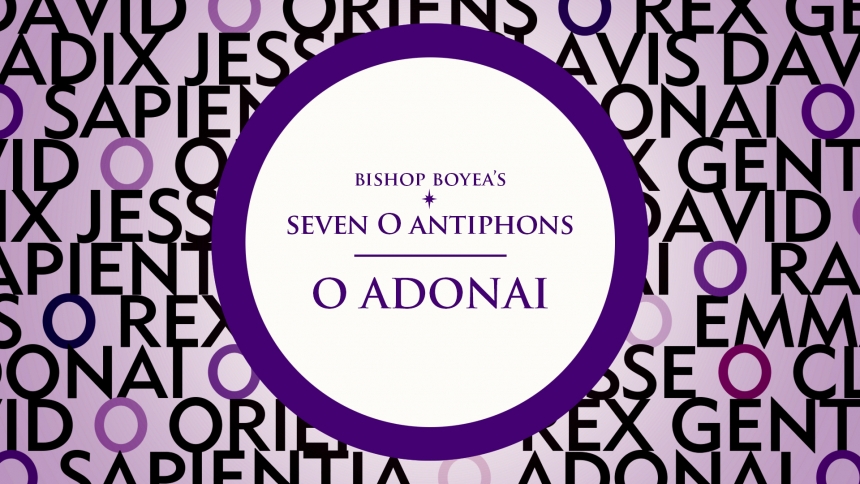
The seven Great 'O' Antiphons of Advent are sung before the Magnificat at Vespers during the seven days prior to Christmas. They are seven words or phrases, mostly in Latin, which look forward to the coming of the Messiah. They have been prayed by the Church since, at least, the 8th century. Today Bishop Earl Boyea reflects upon the second “O” Antiphon: “O Adonai” (O Lord). Here is what he says:
“Our second antiphon, which is sung on December 18th, is: “O sacred Lord of ancient Israel, who showed yourself to Moses in the burning bush, who gave him the holy law on Sinai mountain: come, stretch out your mighty hand to set us free.”
“The eternal wisdom of God, which had existed before all of creation, now appears to Moses. To Moses and to us God has offered the Law as a way toward redemption and freedom. After the sin of Adam and Eve, God did not abandon us but continued to extend to us his arm of salvation.”
“It is as Adonai or Lord that God is known. This is the name he presented to Moses and by which he is adored in Jewish history. Isaiah three times acclaims the Lord as he expectantly says, “For the Lord is our judge, the Lord is our lawgiver, the Lord is our king; he it is who will save us” (Isaiah 33:22). Jeremiah describes how God accomplished salvation for the Jewish people in Egypt: “You brought your people Israel out of the land of Egypt with signs and wonders, with a strong hand and an outstretched arm, and great terror” (Jeremiah 32:22).”
“Jesus, as the fulfillment of this prophecy is a new Moses. We see this especially in Matthew’s account of the Sermon on the Mount. There Jesus gives us a new law, one that is to be written on our hearts. And it was the stretching out of both of his arms on the cross which would bring us freedom, release from our bondage, and salvation."
“Sisters and brothers, as we gaze upon those tiny limbs of that infant child in Bethlehem, let us be fully aware of the price he was to pay. This Jesus became like us in all things but sin. Yet, he willingly laid down his life for us from the very moment of his incarnation. He is truly the burning bush before whom we must take off our shoes and bow down in worship. In him, we see the face of the Father, burning with love for us.”
